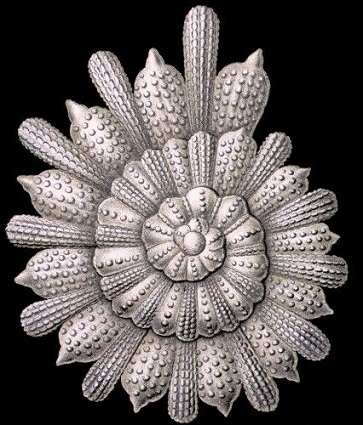Kant e la 'scuola di Gottinga'. Alcune note a margine della 'tesi Lenoir'
DOI:
https://doi.org/10.13130/2240-9599/6682Abstract
The paper focuses on the reception of Kant’s philosophy of biology in the context of the so-called ‘Göttingen School’. Timothy Lenoir has tried to rehabilitate the framework elaborated at Göttingen by stressing its difference from Naturphilosophie. Focusing on the work of Karl Friedrich Kielmeyer this paper argues that Lenoir’s position is based on a historiographical bias. I take into account Kielmeyer’s stance on physiology, embryology and natural history. This analysis reveals the existence of a clear shift from a regulative to a constitutive understanding of teleology. I agree with Zammito that the ‘Lenoir thesis’ should be overcome in favor of a more accurate narrative of the emergence of biology in Germany at the turn of the nineteenth century.Riferimenti bibliografici
CANEVA, Kenneth, Teleology with regrets, «Annals of Science», 47 (1990), pp. 291-300.
COLEMAN, William, Limits of the recapitulation theory. Carl Friedrich's Kielmeyer's critique of the presumed parallelism of earth history, ontogeny, and the present order of organisms, «Isis», 64 (1793), pp. 341-350.
FISCHER, Kuno, Kant’s explanatory natural history: generation and classification of organisms in Kant’s natural philosophy, in HUNEMAN, Philippe (ed.), Understanding purpose: Kant and the philosophy of biology, New York, University of Rochester Press, 2007, pp. 101-122.
HUNEMAN, Philippe, Kant and biology? A quick survey, in HUNEMAN, Philippe (ed.), Understanding purpose: Kant and the philosophy of biology, New York, University of Rochester Press, 2007.
HUNEMAN, Philippe, Métaphysique et biologie, Paris, Kimé, 2008.
HUNEMAN, Philippe, Reflexive judgment and Wolffian embriology: Kant’s shift between the First and the Third Critique, in HUNEMAN, Philippe (ed.), Understanding purpose: Kant and the philosophy of biology, New York, University of Rochester Press, 2007, pp. 75-100.
ILLETTERATI, Luca, Being for purposes and functions in artifacts and living beings, in ILLETTERATI, Luca - MICHELINI, Francesca (ed.), Purposiveness: teleology between nature and mind, Frankfurt, Ontos Verlag, 2008, pp. 135-161.
KANT, Immanuel, Kritik der Urteilskraft, Berlin, Akademie Verlag, 2008 (tr. it. di GARGIULO, Antonio, Critica del Giudizio, Roma-Bari, Laterza, 2011).
KANZ, Kai Torsten (ed.), Philosophie des Organischen in der Goethezeit: Studien zu Werk und Wirkung des Naturforscher K.F. Kielmeyer (1765-1844), Stuttgart, Steiner, 1994.
KANZ, Kai Torsten, Einleitung, in KIELMEYER, Karl Friedrich von, Über die Verhältnisse der organischen Kräften untereinander in der Reihe der verschiedenen Organisationen, die Gesetzte und Folgen dieser Verhältnisse, Stuttgart, Akademischen Buchdruckerei, 1994.
KIELMEYER, Carl Friedrich von, Gesammelte Schriften, hrsg. v. F.-H. Holler, Berlin, Keiper, 1938.
LENOIR, Timothy, Generational factors at the origin of “Romantische Naturphilosophie”, «Journal of the history of biology», 11 (1978), 1, pp. 57-100.
LENOIR, Timothy, Kant, Blumenbach and the vital-materialism in German biology, «Isis», 70 (1980), pp. 77-108.
LENOIR, Timothy, Teleology without regrets. The transformation of physiology in Germany: 1790-1847, «Studies in history and philosophy of science Part A», 12 (1981), 4, pp. 293-354.
LENOIR, Timothy, The Göttingen school and the development of transcendental Naturphilosophie in the Romantic Era, «Studies in the history of biology», 5 (1981), pp. 111-205.
LENOIR, Timothy, The strategy of life: teleology and mechanics in eighteenth-century German biology, Dordrecht, Riedel, 1982.
MCLAUGHLIN, Peter, Naming biology, «Journal of the History of Biology», 35 (2002), 1, pp. 1-4.
NUNZIANTE, Antonio, Organismo come armonia. La genesi del concetto di organismo vivente in G.W. Leibniz, Trento, Verifiche, 2002.
NUNZIANTE, Antonio, Postfazione a G.W. Leinbiz, Contro la teoria medica vera di G.E. Stahl. Sui concetti di anima, vita, organismo, Macerata, Quodlibet, 2011.
RICHARDS, Robert J., Kant and Blumenbach on the Bildungstrieb: a historical misunderstanding, «Studies in history and philosophy of biological and biomedical sciences», 31 (2000), 1, pp. 11-32.
RICHARDS, Robert J., The meaning of evolution: the morphological construction and ideological reconstruction of Darwin's theory, Chicago, University of Chicago Press, 1992.
RICHARDS, Robert J., The Romantic conception of life: science and philosophy in the age of Goethe, Chicago, University of Chicago Press, 2002, pp. 207-236.
ROE, Shirley A., Matter, life and generation. 18th Century embryology and the Haller-Wolff debate, Cambridge, Cambridge University press, 2003.
SCHMITT, Stephane (ed.), Les forces vitales et leur distribution dans la nature: un essai de "systématique physiologique": textes de C.F. Kielmeyer, 1765-1844, H.F. Link, 1767-1851 et L. Oken, 1779-1851, Paris, Brepolis, 2006.
SLOAN, Phillip R., Buffon, Kant and the historical interpretation of biological species, «The British journal for the history of science», 12 (1979), 2, pp. 109-153.
ZAMMITO, John, Kant’s persistent ambivalence toward epigenesis 1764-90, in HUNEMAN, Philippe (ed.), Understanding purpose: Kant and the philosophy of biology, New York, University of Rochester Press, 2007, pp. 51-74.
ZAMMITO, John, The Lenoir thesis revisited: Blumenbach and Kant, «Studies in history of biological and biomedical sciences», 43 (2012), 1, pp. 120-132.
ZUCKERT, Rachel, Kant on beauty and biology: an interpretation of the Critique of Judgment, Cambridge, Cambridge University Press, 2007.



